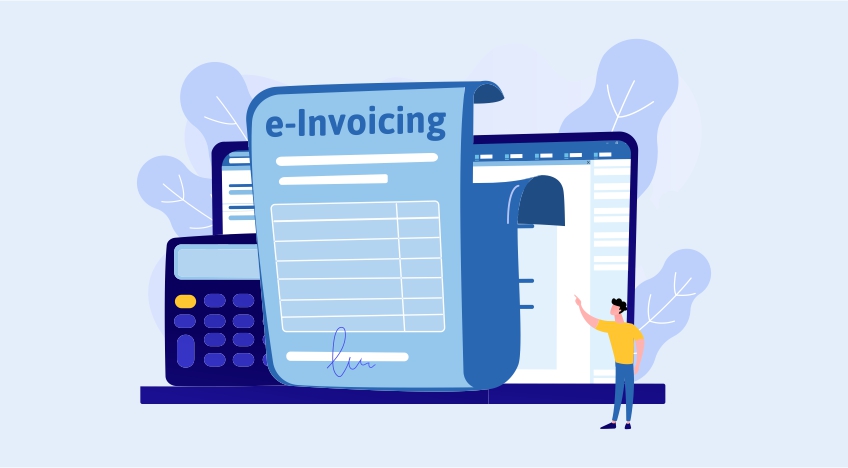Key Takeaways
- eBilling streamlines payment processes, reducing paperwork and saving time.
- Electronic billing enhances accuracy and provides real-time tracking.
- Transitioning to eBilling can lead to significant cost savings for businesses.
In today’s fast-paced business environment, outdated billing methods can bog down operations and lead to inefficiencies, ultimately affecting a company’s bottom line. E-billing is revolutionizing companies by streamlining payment processes, reducing errors, cutting operational costs, and promoting operational efficiency and sustainability.
E-billing, or electronic billing, gives businesses a modern approach to managing accounts payable and receivable, eliminating the need for cumbersome and time-consuming paperwork. The advantages of adopting e-billing are manifold. From enhanced billing accuracy to providing capabilities for real-time data tracking, e-billing presents a compelling choice for businesses aiming for streamlined and efficient billing operations.
Basics to eBilling
E-billing is the digital process of sending, receiving, and managing invoices through secure and efficient electronic systems. Unlike traditional billing systems, which rely heavily on paper and manual entries, e-billing uses electronic data interchange (EDI) and safe internet connections to facilitate seamless transactions. This shift reduces physical paperwork and speeds up billing cycles, allowing businesses to stay ahead in a competitive market. Companies adopting e-billing are thus embarking on a journey towards modernizing their financial operations and staying agile in today’s evolving digital landscape.
How E-Billing Improves Efficiency
Automation is a key element in e-billing, significantly reducing the risk of human errors in manual billing processes like incorrect data entry or misplaced documents. Furthermore, e-billing speeds up payment cycles by ensuring invoices reach customers immediately upon the issue and can be tracked in real-time. With e-billing, businesses access powerful analytics tools that provide insights into cash flow, payment trends, and the organization’s financial health. These insights enable informed decision-making and forecasting, which is critical for strategic planning and growth.
Understanding the Security of E-Billing
Security is paramount in any digital financial process, and e-billing systems are built with security at their core. These systems employ advanced encryption techniques to safeguard sensitive financial data against unauthorized access and fraud. Multi-factor authentication enhances security by requiring multiple authentication methods, enhancing customer trust and business integrity in a world of constant data breaches.
The Benefits of Adopting eBilling
The transition to e-billing offers numerous benefits, the foremost being its significant reduction in environmental impact. By cutting down on paper invoices and postal deliveries, e-billing directly aligns with global sustainability efforts to reduce waste and promote green practices. Additionally, businesses benefit from time savings as invoicing processes become automated, allowing employees to focus on more value-added activities. The streamlined processes also improve cash flows as clients can respond and make payments more quickly when invoices are delivered electronically.
Challenges and Solutions in eBilling Adoption
Despite its advantages, transitioning to e-billing is challenging. Businesses may face initial setup costs and technical hurdles, such as integrating e-billing platforms with existing systems. However, these challenges are manageable. Investing in comprehensive staff training programs and seeking expert advice can facilitate a smooth transition. Furthermore, adopting strategic change management approaches, such as phased rollouts and pilot programs, can help alleviate resistance and ensure a seamless adoption process, ultimately leading to long-term gains.
The Future of E-Billing in Business
The billing world is rapidly evolving, and e-billing is at the forefront of this transformation. Emerging technologies like blockchain are poised to offer unprecedented enhancements in e-billing security and transactional transparency. Additionally, future accounting trends suggest that mobile and cloud-based billing solutions will become increasingly prevalent, offering businesses greater flexibility and accessibility. As these technologies mature, they will shape the next phase of e-billing, making it an indispensable tool for companies across industries.
Conclusion: Why E-Billing is a Smart Choice
Ultimately, e-billing represents a crucial step forward for businesses seeking efficiency, cost-effectiveness, and sustainability. By adopting e-billing, companies transform their billing systems into high-performing, innovative tools that support growth and adaptability. Beyond streamlining the payment process, e-billing contributes positively to environmental goals and enhances customer satisfaction through faster and more accurate billing. As technology advances, the future of business billing looks bright, with e-billing leading the way to a more efficient and sustainable business world.
